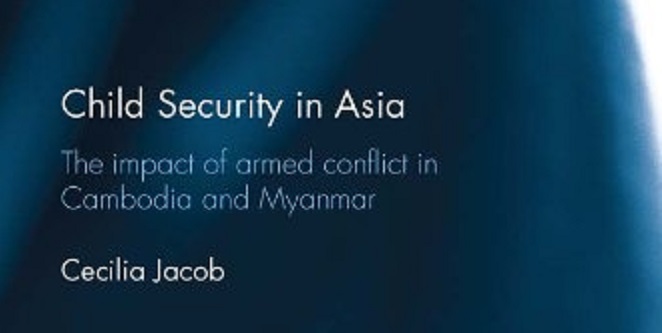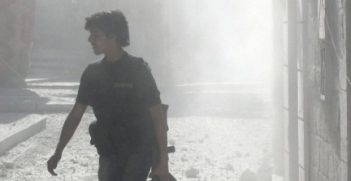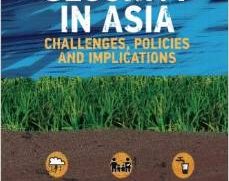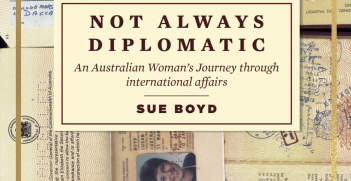Child Security in Asia: The impact of armed conflict in Cambodia and Myanmar

As Hillary Clinton graces the news daily during the presidential campaign, I am reminded of the words she wrote in 1973 that children’s rights are a ‘slogan in search of a definition’. At the time she was still Hillary Rodham and Bill, serving as Secretary of State and being a Presidential hopeful still very much in her future. By calling children’s rights a ‘slogan’ she was pointing out that we are quick to support children’s rights on paper but not so quick to protect them in reality. Cecilia Jacob’s book ‘Child Security in Asia: The impact of armed conflict in Cambodia and Myanmar’ demonstrates that this is just as true today as it was in 1973.
Treatment of children in society is not fair, justified or uniform. Our view of children as innocents, victims, blank slates, criminals or precious gifts changes depending on what benefits us: the adults in the positions of power. Jacob’s book is for those interested in how the theory of children’s rights, security and protection intersects with the contemporary reality of children living in post-conflict countries.
The book draws a strong conclusion about the success to date of the implementation of the human security agenda on the ground. Jacob argues that this implementation has not occurred in a meaningful way for child security. She recognises rightly that the implementation of children’s rights enshrined in international law is meaningless without corresponding actions, resources and commitment from governments. As someone who has moved from writing academically about rights to working in government, this truth falls particularly close to home. It is easy for politicians to sign documents that outline high level principles as this allows them to safely inhabit the moral high ground. It is much harder to continue that political will through the longer and dirtier task of fulfilling their obligations. Yet it is here, in the actions on the ground, that children’s rights are made or broken.
The book is divided into two parts. Part one provides an in-depth and very scholarly review of the human security literature in relation to children. For those who are more interested in the practical application of child security, much of this discussion may be hard going; however, it is important groundwork for the conclusions Jacob draws later in the book. This section contains an excellent analysis of children’s moral status, their rights and the different conceptualisations of their agency.
Part two reports on the original fieldwork that Jacob completed in Cambodia and Myanmar. This fieldwork is interesting in its own right as it is rare to hear the voices of children and young people in conflict and post-conflict zones. In doing so, Jacob presents a thorough overview of the role that power and hierarchical society plays in Southeast Asia and the implications of this for protecting children.
It is in drawing these two parts of the book together, however, that Jacob really hits her stride. It is here that she marries theory and fieldwork to draw important conclusions. Jacob identifies how the historical and sociological factors in a society influence the way in which child security is prioritised by government. Jacob argues that the traditional humanitarian responses to child security have originated from a development-oriented child protection framework drawn from western constructions of childhood as a vulnerable phase of life. Jacob’s fieldwork has shown that there is a tendency for state security to be constructed as a matter of high importance and, by contrast, for child protection to be viewed as a low-priority social issue. She argues that the space between security and development is political and is the area in which protection of children can easily be bypassed.
Reading this book brings home the reality of the plight of children in conflict zones around the world. The current situation in Syria, in particular, presents a real and alarming example where the rights of children and their security and their protection are threatened. Jacob’s book is well worth a read for those interested in how we should be thinking about these complex but important issues.
Cecilia Jacob, Child Security in Asia: The impact of armed conflict in Cambodia and Myanmar, Routledge, 2014.
Reviewed by Dr Mhairi Cowden, Assistant Principal Policy Officer, Department of Premier and Cabinet of Western Australia.





